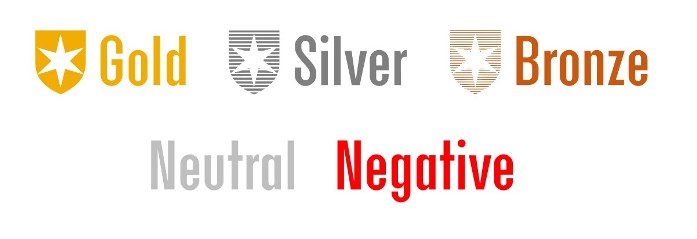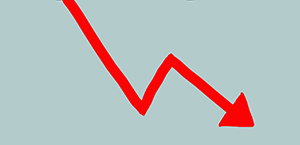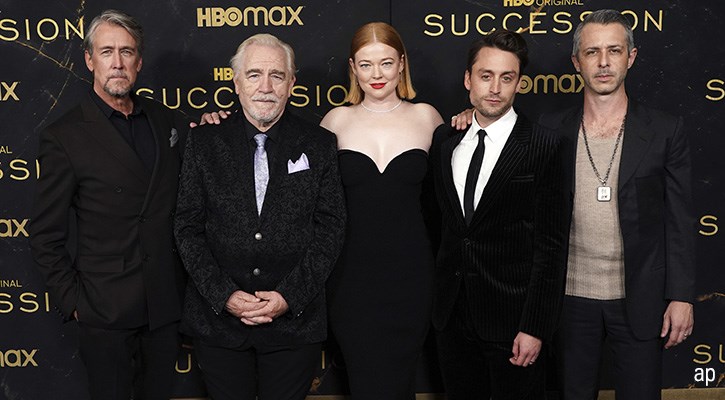New Ratings
JPM Income – Neutral
Patrick Ge
We have initiated coverage on the SICAV vehicle of JPM Income. The strategy is a flexible income oriented multi-sector bond fund that is helmed by veteran managers Andrew Norelli and Drew Headley. While the pair are experienced investors within their specializations – Norelli in emerging markets debt and Headley in mortgages – they don’t have a lengthy track record running a diversified bond strategy with a hefty risk appetite.
The investment menu is broad and relies on the managers to tap into the firm’s broad fixed income research to identify higher income-generating fixed-income sectors. Whether this team is able to harness available resources and translate the portfolio’s flexibility into advantageous positionings across a variety of market environments requires time to evaluate. As such, the strategy’s cheaper share classes earn a Morningstar Analyst Rating of Neutral while pricier share classes are rated Negative.
Upgrades
iShares MSCI Japan ESG Scrn ETF – Silver from Bronze
Kenneth Lamont
This fund offers low-cost representative exposure to Japanese equities in a category in which passive fund have proved difficult to beat. ESG screens are applied so that the strategy employed retains the core strengths of the unscreened MSCI Japan index. The strategy provides approximate exposure to the top quartile of Japanese companies ranked on environmental, social, and governance criteria. In addition to picking the most compliant stocks by sector, it also applies several hard-screens, excluding firms based on their carbon-risk profile and on other values-based issues like controversial weapons and tobacco.
A 5% issuer cap is also in place to limit individual stock concentration and improve diversification. The sector constraints and a cap-weighting methodology employed mean that, despite fewer holdings this fund remains largely representative of the opportunity set and is a suitable heavily ESG-flavoured substitute for other funds tracking the Japanese equity market. The fund has an ongoing charge of 0.20%, making it much cheaper than active peers in the Japan large cap equity Morningstar Category. For these reasons, we have upgraded this fund to a Morningstar Analyst Rating of Silver from Bronze.
iShares US Property Yield ETF – Gold from Bronze
Kenneth Lamont
Supported by its low fee, and representative beta exposure this fund had proved itself to be a standout option within the Indirect North American Property Morningstar Category. Even though it applies a light dividend screen, it retains the characteristics of vanilla cap-weighted passive strategy in a category in which active managers have struggled to distinguish themselves. The FTSE EPRA/NAREIT US Dividend+ Index provides exposure to US REITs and listed real estate companies that have been screened by their one-year forecast dividend yield.
The constituents must have a forecast dividend yield of at least 2%, which arguably represents a low hurdle given the obligation for US REITs to maintain high dividend payout ratios. At the time of rating, the Index, which is market-cap-weighted, held 119 of the 126 securities included in the unscreened FTSE EPRA/NAREIT US Index, so it closely resembles and retains the benefits of a purely passive offering, namely that it is broadly diversified and representative of the sector. With an ongoing charge of 0.40%, the fund is among the very cheapest offerings in the indirect North American property Morningstar category. For these reasons, we have awarded this fund a Morningstar Analyst Rating of Gold.
Jupiter European – Bronze from Neutral
Samuel Meakin
Mark Nichols and Mark Heslop assumed responsibility for this strategy in October 2019 following previous manager Alexander Darwall’s departure from Jupiter. We continue to watch how the team beds down as the managers are still recruiting analytical resources to build it out. However, the distinctive, high-quality focus to the approach, which was previously implemented soundly elsewhere, means there are positives to this strategy. The Morningstar Analyst Rating on the I share class is therefore upgraded to Bronze from Neutral. More-expensive share classes are rated Neutral.
JPMorgan Japanese Ord – Silver from Bronze
Samuel Lo
JPMorgan Japanese Investment Trust’s experienced and capable lead manager Nicholas Weindling and the well-resourced supporting team continue to inspire confidence. Weindling follows J.P. Morgan’s quality-growth approach, which is based on the strategic classification framework that is also employed across the Emerging Markets and Asia Pacific equities team’s other offerings. We are familiar with this approach and believe it to be robust and time-tested. This closed-end vehicle is part of a much larger JPMorgan Japan strategy, which has seen a significant increase in its asset size to USD 10.1 billion as of December 2019.
While we previously had some questions regarding the strategy’s asset base, the team has maintained a reasonably liquid portfolio and a stable number of holdings over the years. What’s more, the team has taken appropriate capacity management measures, including soft-closing the Luxembourg-domiciled vehicle in June 2018. Overall, our conviction in the investment approach has increased, which results in a Process rating upgrade to Above Average from Average. As a result, the Morningstar Analyst Rating for the investment trust has been upgraded to Silver from Bronze.
UBS ETF MSCI Japan SRI JPY – Bronze from Neutral
Kenneth Lamont
This fund’s substantial fee advantage versus active and its similarities with purely passive peers in a category in which low-cost trackers have proved difficult to beat supports a positive rating. The MSCI Japan SRI 5% Capped Index provides approximate exposure to the top quartile of Japanese companies ranked on Environmental, Social and Governance criteria. In addition to picking the most compliant stocks by sector it also applies several values-based hard-screens, covering issues like controversial weapons and tobacco.
A 5% issuer cap is also in place to limit individual stock concentration. Importantly it includes all Japanese stocks in the Pacific SRI parent index (rather than the most ESG compliant holdings in the MSCI Japan Index). This feature of the index means that it suffers from persistent sector biases versus both the MSCI Japan Index and its average category peer (e.g. a large underweight to financials).
The selection process has also resulted in a persistent large-cap bias versus peers. For these reasons this fund is imperfect building block for those looking for Japanese equity exposure. The fund has an ongoing charge of 0.40%, making it cheaper than active peers in the Japanese large cap equity Morningstar Category, although significantly cheaper passive options--both ESG-screened and -unscreened variants--are available. For these reasons, we have upgraded this fund to a Morningstar Analyst Rating of Bronze from Neutral.
UBS ETF MSCI EMU SRI – Gold from Silver
Kenneth Lamont
The ESG-screened fund has proven to be one of the standout stand-out options for investors seeking eurozone large-cap equities since it changed benchmark in November 2015. In addition to its low relative cost, the fund strategy retains the key characteristics of the MSCI EMU index, a strategy that has proven hard to beat over long periods. The MSCI EMU SRI 5% Capped Index provides exposure to the top quartile of Eurozone companies ranked on Environmental, Social and Governance criteria. In addition to picking the most compliant stocks within each sector, it also applies several values-based hard-screens, covering issues like controversial weapons and tobacco. A 5% issuer cap is also in place to limit individual stock concentration and improve diversification.
The sector constraints and a cap-weighted methodology mean that, despite fewer holdings this fund remains largely representative of the opportunity set and is a suitable ESG-flavoured substitute for other funds tracking Eurozone equities. The strict ESG selection and lack of country constraints mean that performance can be expected to diverge from the MSCI EMU Index, but research suggests that adding an SRI screen is unlikely to negatively impact risk-returns over longer periods. The fund has an ongoing charge of 0.28%, making it much cheaper than active peers in the eurozone large cap equity Morningstar Category. For these reasons we have upgraded this fund to a Morningstar Analyst Rating of Gold rating from Silver.
Unigestion Swiss Equities – Silver from Bronze
Natalia Wolfstetter
Unigestion Swiss Equities applies Unigestion’s proven approach to low-volatility investing to the Swiss equity market. It continues to earn Above Average Process and People Pillar ratings. Under our enhanced ratings framework, which places a greater focus on fees and expected benchmark-relative performance, the Morningstar Analyst Rating increases to Silver from Bronze on all share classes.
Vanguard European Stock Index – Gold from Silver
Dimitar Boyadzhiev
Vanguard European Stock Index tracks a broad and diversified equity market index that has proved to be a formidable opponent for active funds to beat. MSCI Europe covers around 440 large- and mid-cap companies from 15 developed countries in Europe, including the UK. It is one of the cheapest MSCI Europe open-end funds on offer, and we have a strong conviction in the merits of the benchmark and the ability of the fund to consistently deliver above-average returns in the context of its Morningstar Category. We have therefore upgraded it to a Morningstar Analyst Rating of Gold.
Xtrackers MSCI EM Swap ETF – Bronze from Neutral
Briegel Leitao
The Xtrackers MSCI EM Swap ETF presents itself as an attractive option for investors looking to gain global emerging-markets equity exposure. However, a mixed performance track record versus peers, as well as ongoing and significant country concentration risks limit the fund’s Morningstar Analyst Rating to Bronze. The fund tracks the performance of the MSCI Emerging Markets Index, an index made up of 26 countries. The strategy has a long-standing China bias (41% at the time of writing) that has been increasing since 2017 when MSCI implemented a phased inclusion of China A-shares into its global and emerging-markets indexes. Outside of the China A-shares inclusion, the MSCI EM universe has expanded to include Saudi Arabia (and the world’s largest IPO, Saudi Aramco) and Argentina. These country additions represent better diversification for the index as well as a fairer representation of the opportunity set available for investors.
Downgrades
Blackrock Asia – Neutral from Bronze
Samuel Lo
Andrew Swan, this strategy’s lead manager (via the Luxembourg-domiciled BlackRock Asian Dragon vehicle) since joining BlackRock from J.P. Morgan in 2011, unexpectedly left the firm in April 2020. Swan is pursuing another opportunity and relocating back to Australia after spending 15 years in Hong Kong. Taking over as lead manager here is Stephen Andrews, who joined BlackRock in 2017. While Andrews has 22 years of experience, most of that was on the sellside, most recently at Deutsche Bank covering Asian financials, and he has more to prove as a money manager. His first portfolio management role came in April 2018, when he took over the dividend-oriented BGF Emerging Markets Equity Income, which delivered relatively solid returns through March 2020, but Asian Dragon is his first core mandate.
Alethea Leung, who was appointed this strategy’s backup manager in May 2019, will continue in that capacity. Leung provided most of the stock-specific insights during the April 2020 meeting, highlighting the extemporaneous nature of Swan’s departure and raising doubts that Andrews is ready for his new role. What’s more, the team has lost several other experienced portfolio managers in recent years-including Helen Zhu, Oisin Crawley, and Chris Hall--and elevated analyst turnover has persisted. Overall, our confidence in this strategy’s investment team has significantly eroded, and the People rating has been lowered to Below Average from Above Average. As a result, all of the vehicle’s share classes-including the D Acc GBP clean share class--have their Morningstar Analyst Ratings downgraded to Neutral from Bronze.
BGF Asian Dragon - Neutral from Bronze
Samuel Lo
Andrew Swan, BlackRock Asian Dragon’s lead manager since joining BlackRock from J.P. Morgan in 2011, unexpectedly left the firm in April 2020. Swan is pursuing another opportunity and relocating back to Australia after spending 15 years in Hong Kong. Taking over as lead manager here is Stephen Andrews, who joined BlackRock in 2017. While Andrews has 22 years of experience, most of that was on the sellside, most recently at Deutsche Bank covering Asian financials, and he has more to prove as a money manager. His first portfolio management role came in April 2018, when he took over the dividend-oriented BGF Emerging Markets Equity Income, which delivered relatively solid returns through March 2020, but Asian Dragon is his first core mandate.
Alethea Leung, who was appointed this strategy’s backup manager in May 2019, will continue in that capacity. Leung provided most of the stock-specific insights during the April 2020 meeting, highlighting the extemporaneous nature of Swan’s departure and raising doubts that Andrews is ready for his new role. What’s more, the team has lost several other experienced portfolio managers in recent years--including Helen Zhu, Oisin Crawley, and Chris Hall--and elevated analyst turnover has persisted. Overall, our confidence in this strategy’s investment team has significantly eroded, and the People rating has been lowered to Below Average from Above Average. As a result, the vehicle’s cheapest share classes--including the D2 USD clean share class--have their Morningstar Analyst Ratings downgraded to Neutral from Bronze, while its more expensive share classes fall to Negative.
Note: Under the Morningstar Analyst Rating methodology, different fund share classes may have different ratings






















